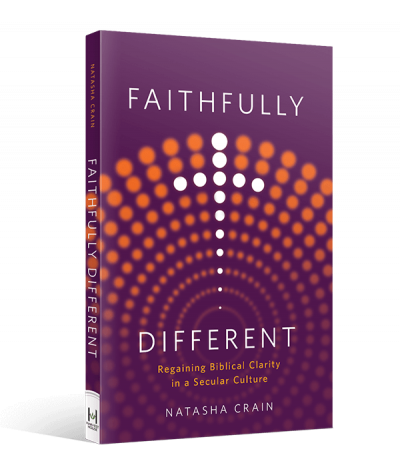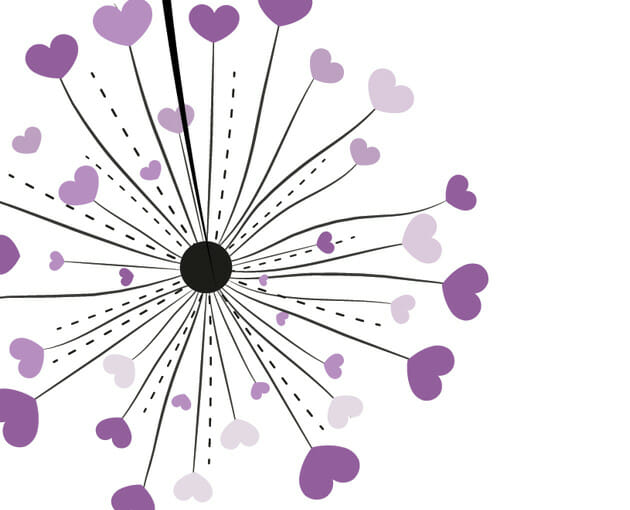As I write this article, our Tuesday evening women’s group has just read and had lively discussions about four chapters of Natasha Crain’s latest book, Faithfully Different. Crain, a mother of three, is probably best known for her books which help parents talk to their children about God and Jesus. In response to the civil unrest in 2020, she published an article on her website (natashacrain.com) entitled “5 Ways Christians are Getting Swept into a Secular Worldview in this Cultural Moment.” It resonated deeply with her readers and led to the writing of Faithfully Different: Regaining Biblical Clarity in a Secular Culture.
When a good friend seemed to be taking a progressive turn both socially and theologically, my interest in and attention to our worldview was piqued—especially as I recognized how inadequate and ill-prepared I felt in trying to respond to her comments. I began reading books like Tactics by Greg Koukl, Another Gospel by Alisa Childers, and Mama Bear Apologetics by Hillary Ferrer. In addition, I now listen regularly to several podcasts that help believers look at and understand our culture through the lens of Scripture rather than the prevailing winds of secularism. These podcasts include the Colson Center’s Breakpoint (which identifies itself as “a daily dose of sanity—applying a Christian worldview to culture, politics, movies, and more”), The Alisa Childers’ Podcast, Stand to Reason, Unbelievable, Cross-Examined, The World and Everything in It, as well as our own Life Academy episodes.
On one of these podcasts, I first heard Natasha Crain interviewed about Faithfully Different. After reading a few chapters, I realized I didn’t want to simply read it by myself; I wanted to be able to talk about the ideas with others, think more deeply about the content, and determine how best to apply it to my own life. Thus, I suggested this book as a focused study for our Tuesday evening Working Women’s Fellowship. My hope is to discern the lies and false reasoning behind the popular ideas posited by our culture and how to counter them graciously. Most of all, I want to understand better what it looks like to live all aspects of my life according to God’s Word without becoming defensive, belligerent, or self-righteous. If you find this topic intriguing or have similar concerns, this book is available in our BookCenter.
by Jeanne Pratt
Participants in the Tuesday evening study provided these comments:
What’s been on my heart lately is how insidiously the secular worldview can creep into our beliefs and behaviors and those of our loved ones—especially young people. I hope this book can help me be a better role model of biblical living to influence the people in my life. There is no greater legacy I can leave. – Barbara K.
I hope to understand better what has happened to our culture and the world around us, and to have confirmation of the importance of standing firm in our faith during these times. – Ann S.
At such a time as this, when we find our fundamental Christian values under attack, it is crucial to be aware of the enemy’s tactics. We must arm ourselves with biblical truth and understanding to affirm, defend, and share the gospel. I hope that this study generates ideas and conversations that encourage others who find themselves falling victim to the claims of a worldview not compatible with biblical truth. – Chris N.
With the proliferation of information in our culture leaning toward the predominant secular worldview, standing on what we know from Scripture and growing deeper in our understanding of Christian discernment is becoming more vital. Colossians 2:8 (ESV) tells us to “see to it that no one takes you captive by philosophy and empty deceit, according to human tradition, according to the elemental spirits of the world, and not according to Christ.” From this study, I hope to learn how to recognize better the insidious tools used by secularism. I am hoping to learn to be better prepared to be faithful in responding appropriately and in truth to the ever-growing push we face in challenging the imposition of secularism’s worldview. – Elsie N.
Page 62 summarizes the author’s message: “We need clarity of belief to shape clarity of thought, and clarity of both belief and thought to provide clarity for living. When we regain biblical clarity in all three areas, our faithful differences will transform us into the salt and light we are called to be.” – Rocio L.

Research shows that only 6 to 10 percent of American adults hold a biblical worldview; we are now the shrinking minority. As the mainstream culture grows more hostile toward the Bible’s truths, we face mounting pressures—from family, friends, media, academia, and government—to change and even abandon our beliefs. In her latest book, apologist and homeschool mom Natasha Crain sees these challenges as opportunities to live out our faith with conviction and courage. By becoming “faithfully different” from the prevailing secular culture, we can stand firm for Christ while shining light in the darkness.





